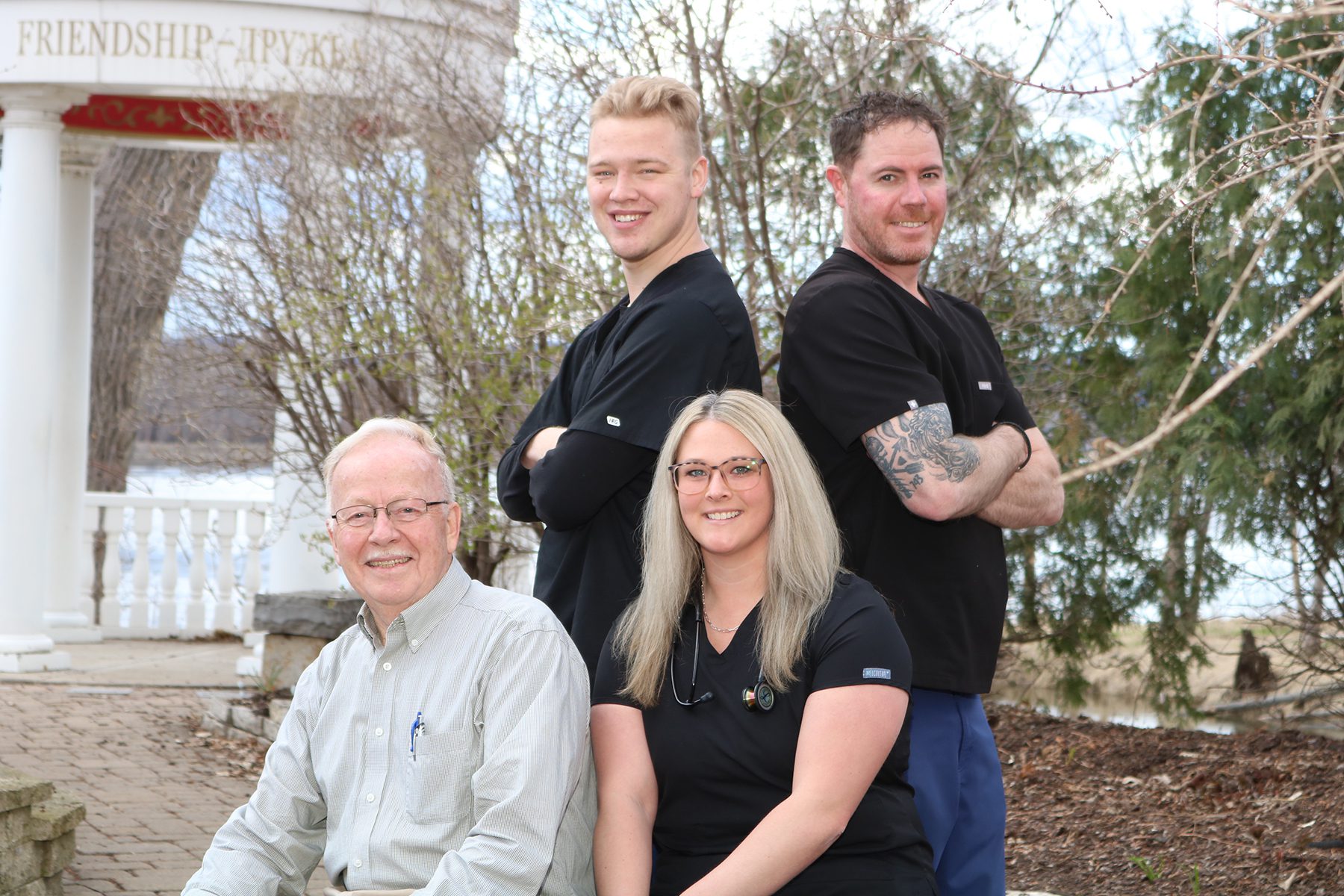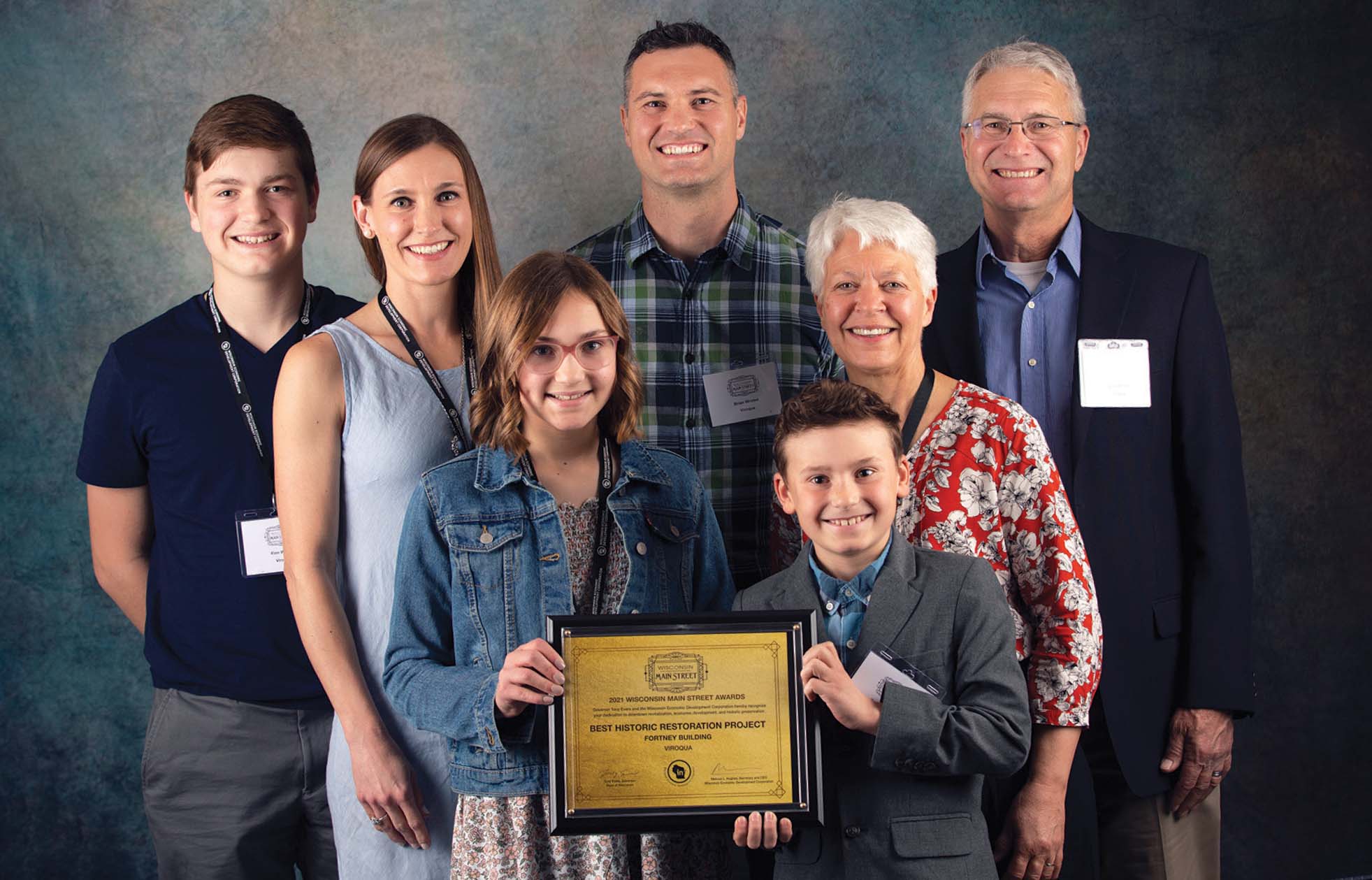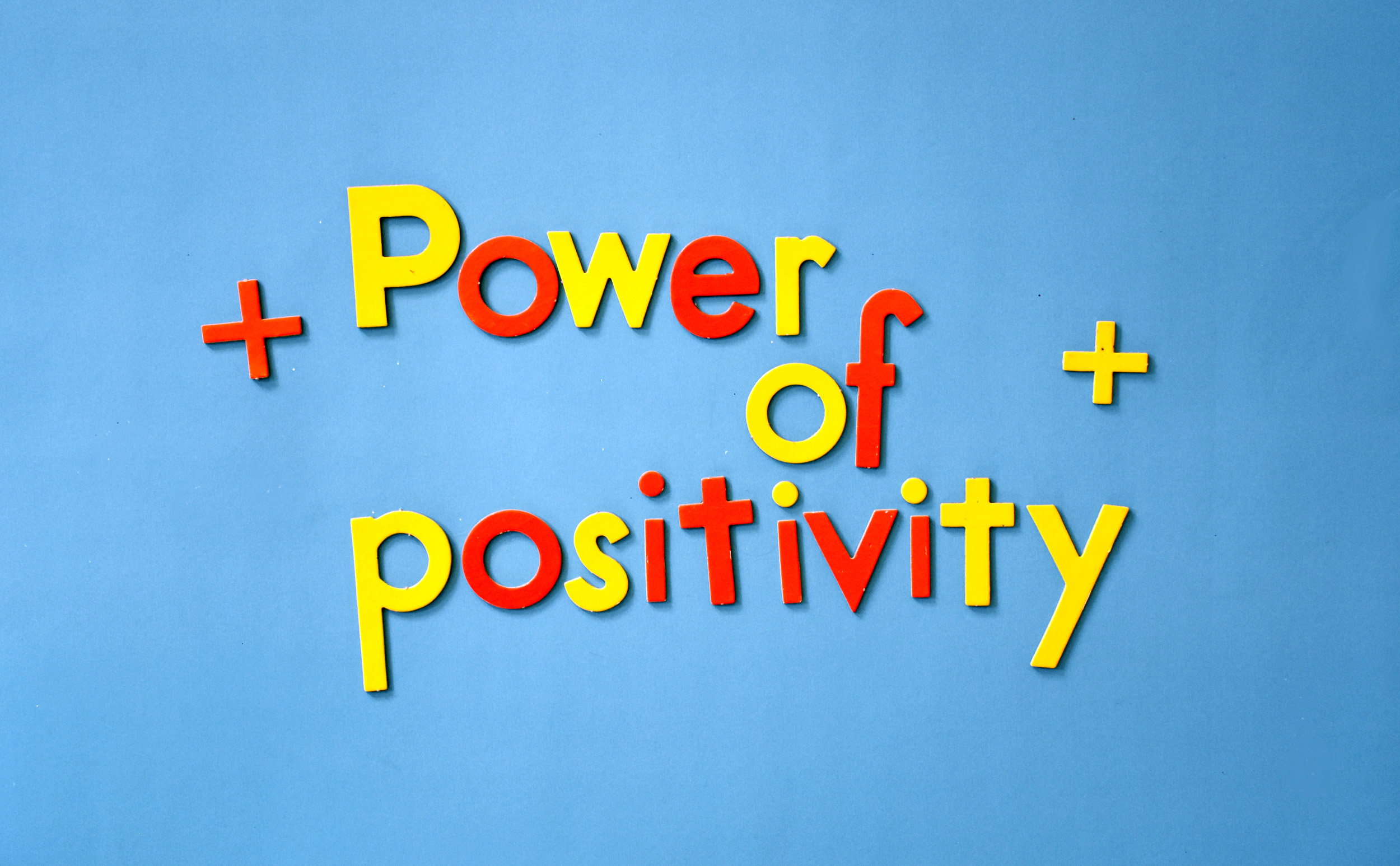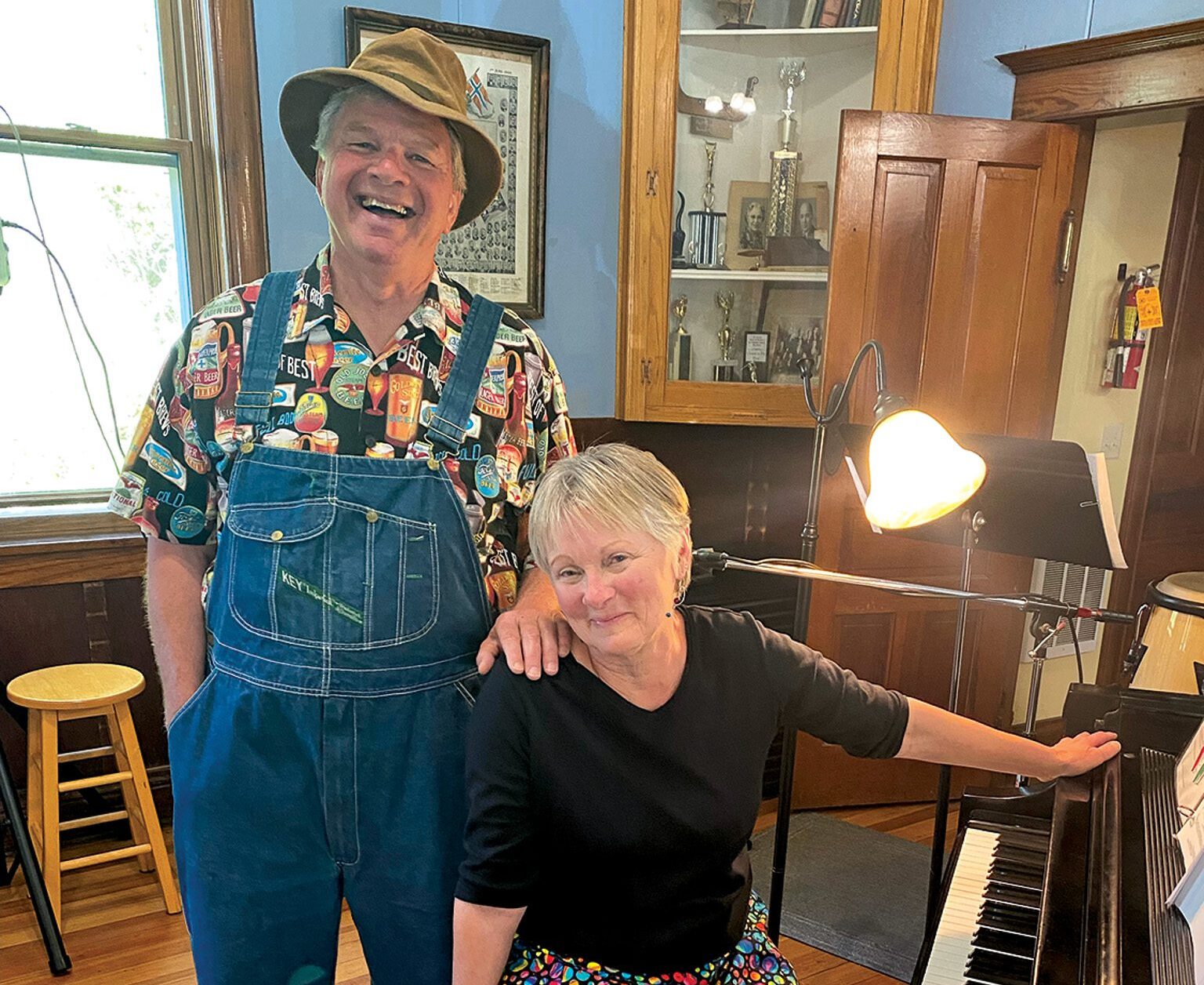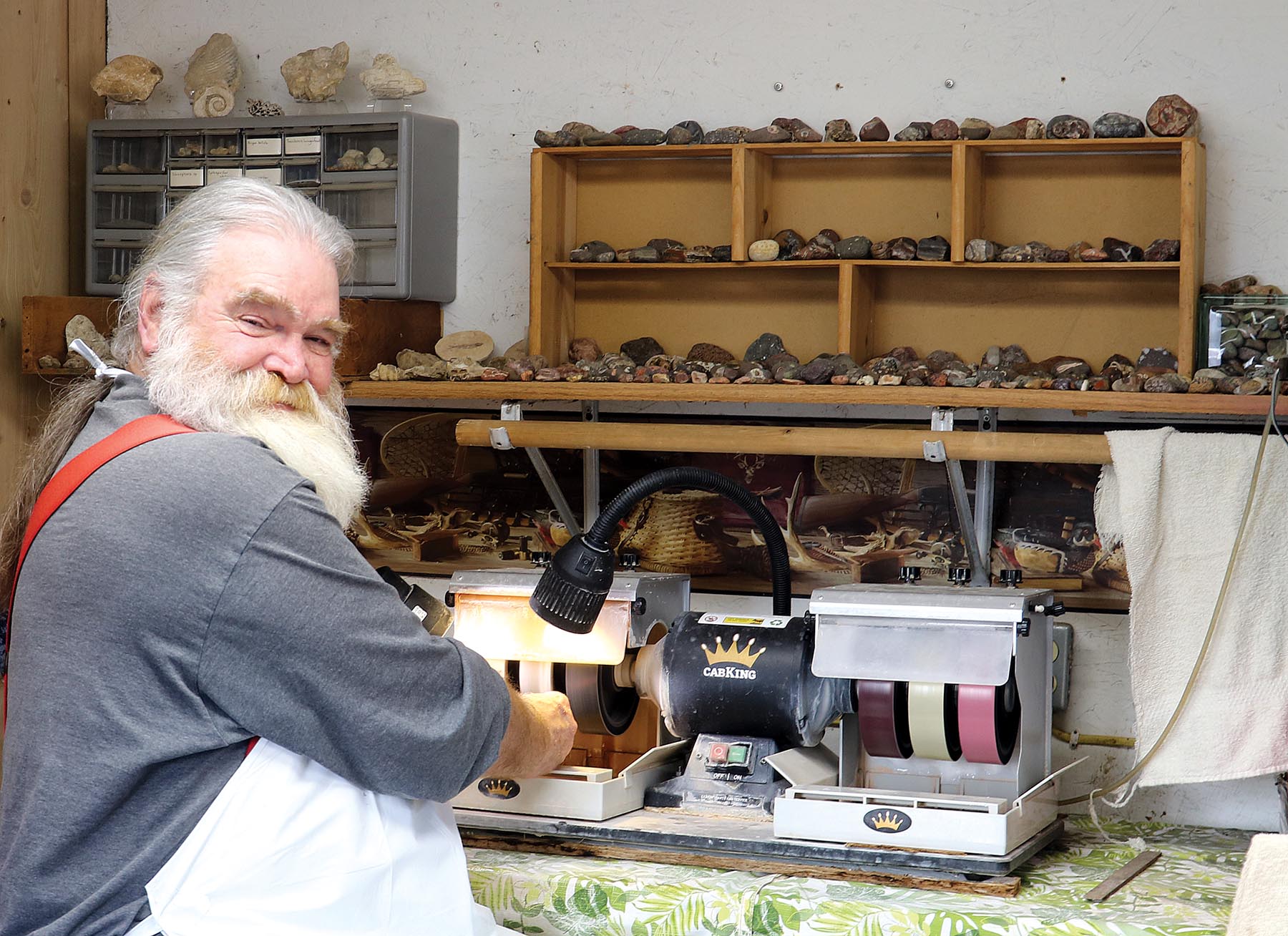Bobbi Rathert
For author and activist Bobbi Rathert, adventure is always on the brain. She’s been a self-proclaimed “wonderer and wanderer” her whole life, traveling all over the world and exploring wherever she landed.
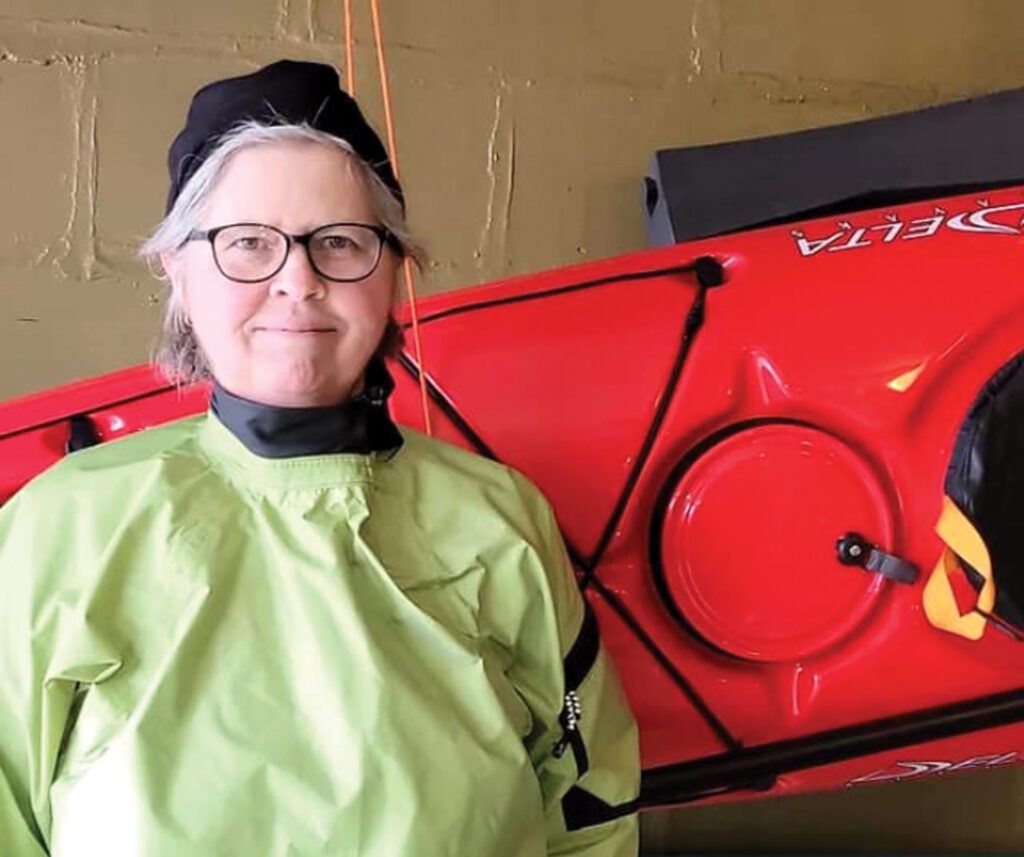
One thing about wandering is that it makes you appreciate the feeling of home even more.
Twenty years ago, after many years of living in Chicago, and before that, her hometown of Cresco, Iowa, Bobbi wandered to a ridgetop farm near La Crosse, Wisconsin. It was just the home she was looking for.
Bobbi has loved living in La Crosse for many reasons – its big city services with smaller-city access; its abundant and beautiful wildlife; the willingness and friendliness of its residents; its rich arts community; its biking and paddling options; and its college-town energy.
“I also love the geography here, the rivers that run through it, the barges and other river traffic, city bus system, mobility features, maintained parks and recreation areas, and easy access to travel whether air, rail, or interstate,” explains Bobbi. “It is a city that is easy to navigate by car, bus, bike, or on foot. Some say it is because La Crosse is boxed in by ridges and the river, making it a long and narrow geography easy to decipher. I agree totally. I love to navigate through the neighborhoods and ridges alike. La Crosse has made the riverfront accessible to everyone, too, which many waterfront cities do not always accomplish.”
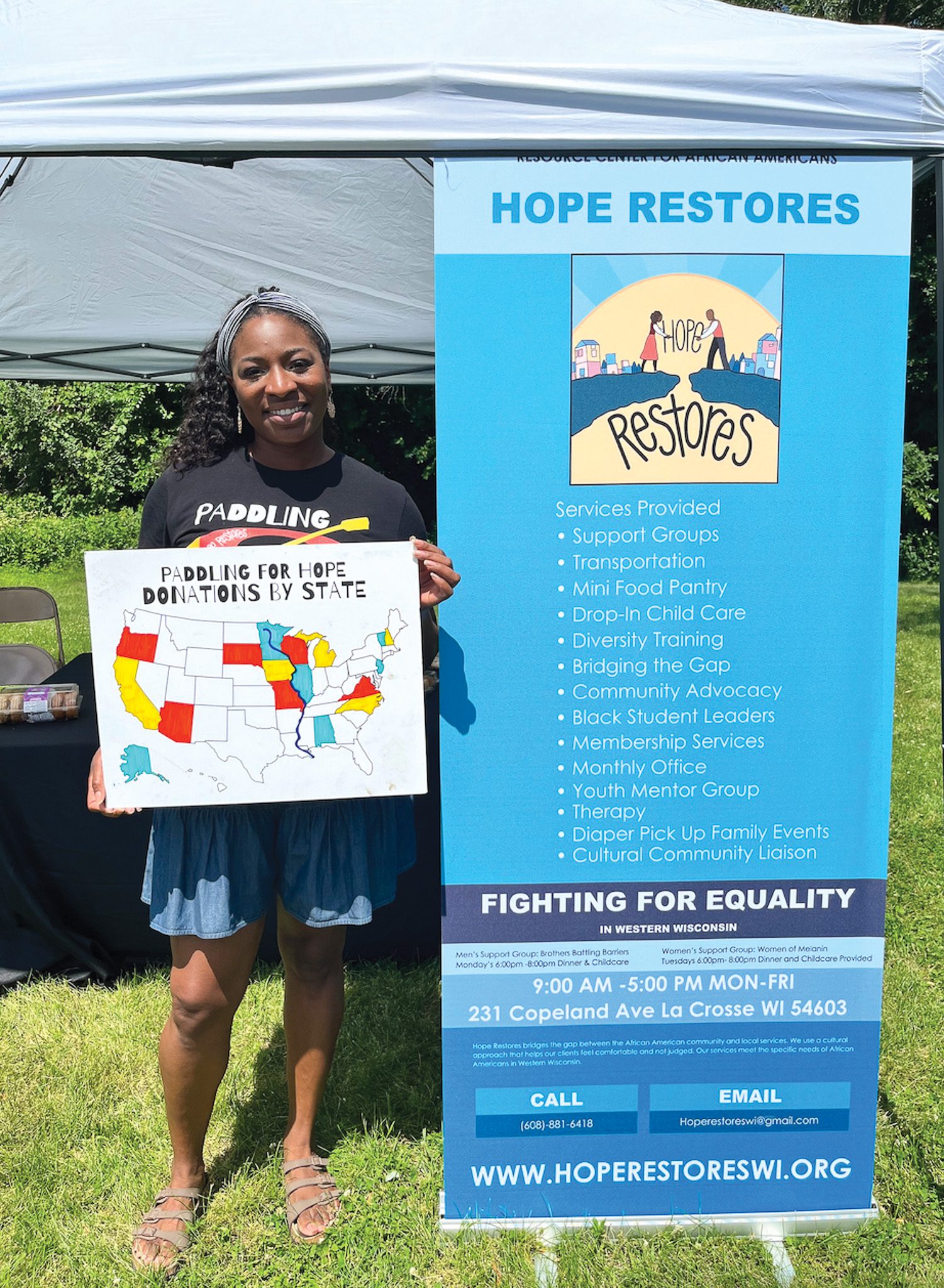
But Bobbi saw that La Crosse was not always accessible and welcoming in other ways, especially for members of its Black community and folks experiencing homelessness. As she neared retirement, she began to wonder how she could give back to her community.
In 2020, Bobbi watched a local film called Amplifying Black Voices. It featured Black youth and their parents in La Crosse, telling their stories of discrimination in the community. Bobbi was heartbroken and wanted to do something.
She watched the film again, wrote down the participants’ names, and proceeded to build meaningful relationships with them. “I witnessed the strength of the people in the Black community who frequently felt demoralized and discouraged when just getting groceries, going to school, applying for jobs, or accessing local services,” Bobbi says.
By then, she had started volunteering at Hope Restores, a La Crosse-based community organization that “supports, advocates, listens, and bridges the gap between the African American community and local services.” As she planned her next adventure, a solo kayaking trip the length of the Mississippi River, Bobbi couldn’t help but think of the folks served by Hope Restores. She wondered if she could use this trip as a tool to raise awareness and money for the organization. “One thing led to another when eventually a committee was formed and a name for the initiative was given: Paddling for Hope. In the end, there were so many pledges and much support that we raised $30,000,” Bobbi says.
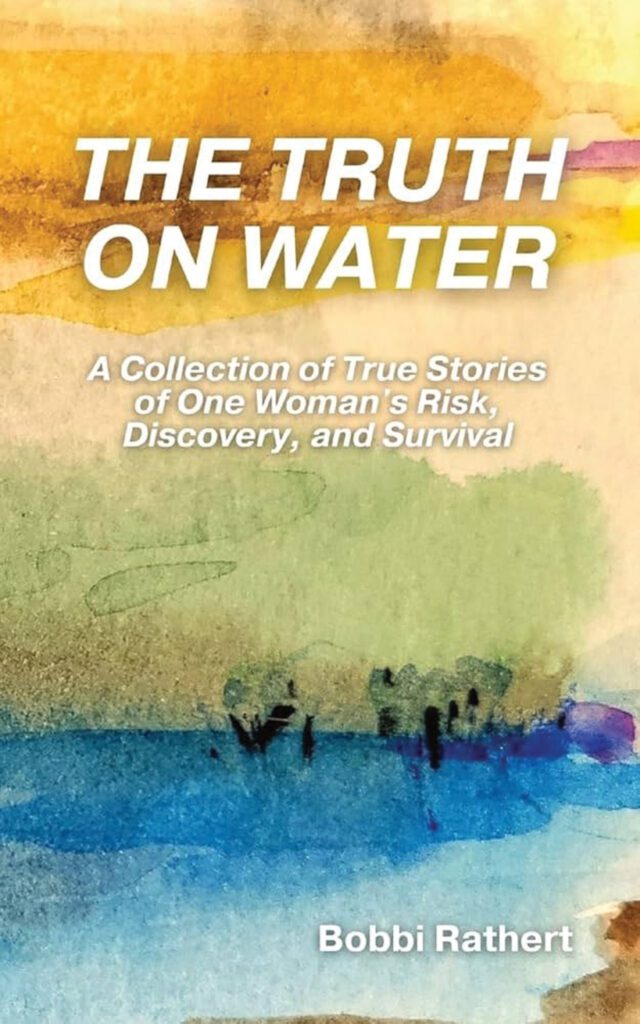
In May 2022, Bobbi set out from the headwaters of the Mississippi in northern Minnesota. She paddled a total of 650 miles before succumbing to heat exhaustion and ending her journey. “I did not die on the river. I lived,” she writes in “The Truth on Water,” the book she authored, chronicling her experiences.
Writing a book and kayaking the Mississippi, both solitary and deeply personal, proved to have many similarities that one finds in uncharted territory. “Both required awareness of precise details and rapid learning and presented very steep learning curves with no one watching out but me,” says Bobbi. “Someone on my river trip said that a kayaker did not need to train to paddle the Mississippi because the trip itself was the training. The paddle, as well as the writing, proved this to be true. I was left with a deep sense of fulfillment from both even though I am not an expert in either.”
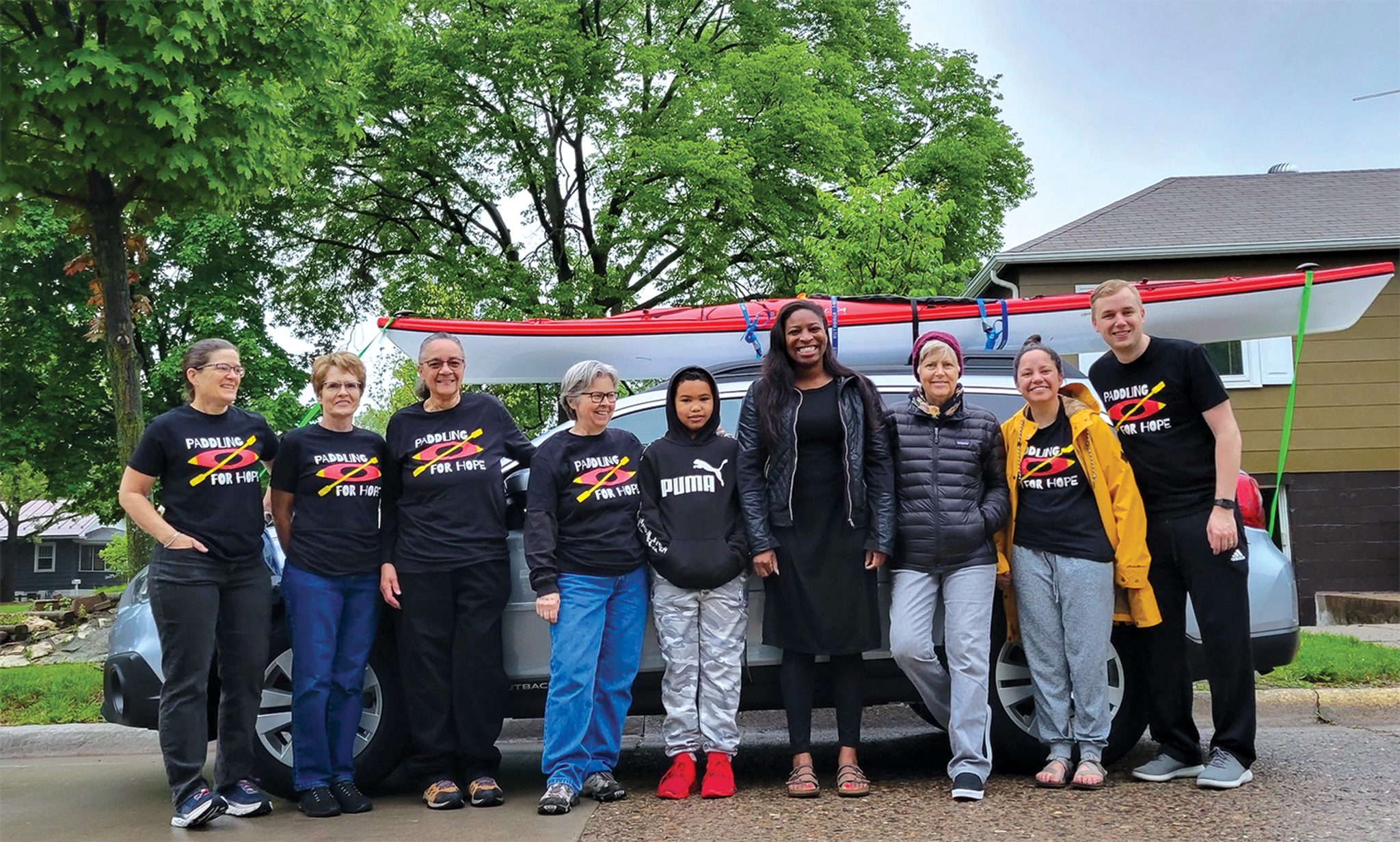
After being on this kayak trip where she slept in a different place every night, Bobbi was relieved to return to La Crosse. “I felt the peaceful experience of being back home, belonging,” she explains. “Then I noticed the difference between me and those living unhomed.”
On a walk along the river park in downtown La Crosse, Bobbi passed a large, active tent encampment, full of unhoused people going about on foot, riding bicycles, and carrying provisions from one tent to another. The contrast between her rooted experience and that of the people there was profound.
The idea to interview these unhomed community members was born. She wanted to learn their stories, hear their disappointments and dreams, and understand where they came from before they began living outside. Bobbi had a hope that sharing their stories may aid in the effort to find solutions for chronic homelessness.
Once she went out to actually talk to people, her resolve faltered.
“When I started to hear stories, I felt clumsy,” she writes in the introduction to her book, “Where’s Home,” the culmination of these interviews. “A voice in my mind kept asking me, ‘What are you doing!?’ I was so embarrassed of myself that I was even out there and obviously over my head. I didn’t understand any part of it and felt awkward and ill-prepared.”
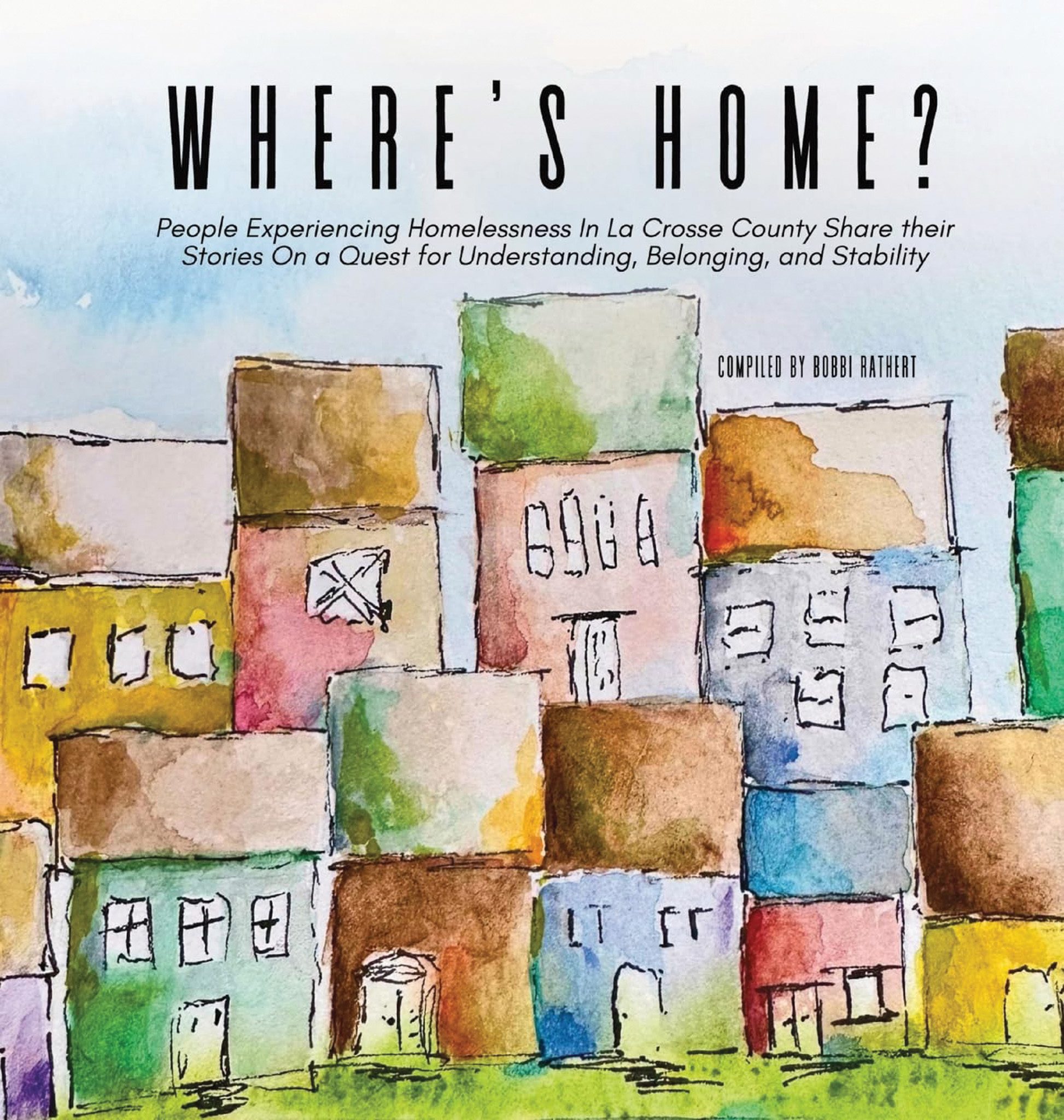
Bobbi thought frequently about ending the project but reminded herself that she needed to finish what she started. For five months, she listened to people’s stories, feelings, and dreams and goals.
“The people started expanding, no longer in my periphery like paper dolls,” she writes. “They began to take shape and dimension. I began to remember names and their deepening stories…I was receiving phone calls asking if I was coming out, or informing me that their friends wanted to speak with me….stories poured out…sorrows and strengths, memories of moms, brothers, and school, obvious faith and ideas, jobs, hopes, and memories of grandparents, their children, and desires for home.”
In 2024, “Where’s Home: People Experiencing Homelessness In La Crosse County Share Their Stories On a Quest for Understanding, Belonging, and Stability” hit the shelves. The first four pages that encompass the introduction are the only part of the book that includes Bobbi. The rest features powerful stories of these local people living unhoused and tells of agencies and services that are working to help those experiencing homelessness.
Bobbi’s engagement in social justice efforts is a heartfelt one. “I run on a belief that, if humans, particularly those privileged, are shown or can gain a better understanding, they will want to do good and contribute more toward the wellbeing of others – to be part of making that difference,” she says. “While my belief is not necessarily true in reality, it is in me to always hope for it.”
Bobbi’s love of the Driftless helps keep her hopeful as well.
“The Driftless Region is a wonderfully spiritual place to live. I feel blessed to know it has been my home since birth in Northeast Iowa and now in Southwest Wisconsin,” she says. “Of all places on earth, this has always been the most satisfying and enriching place for me to return. It is a deep joy to live here.”
As for her next adventure, for Bobbi, it’s just one of self-reflection. “I am on an adventure right now, one of finding my own self and what I need from my world. I have had an external outlook much of my life, regarding others and what I can do to be most helpful. So, nurturing a self-focus is a real adventure and time of discovery.” She adds, “I long for more kayaking and sleeping outdoors, so we’ll see!”
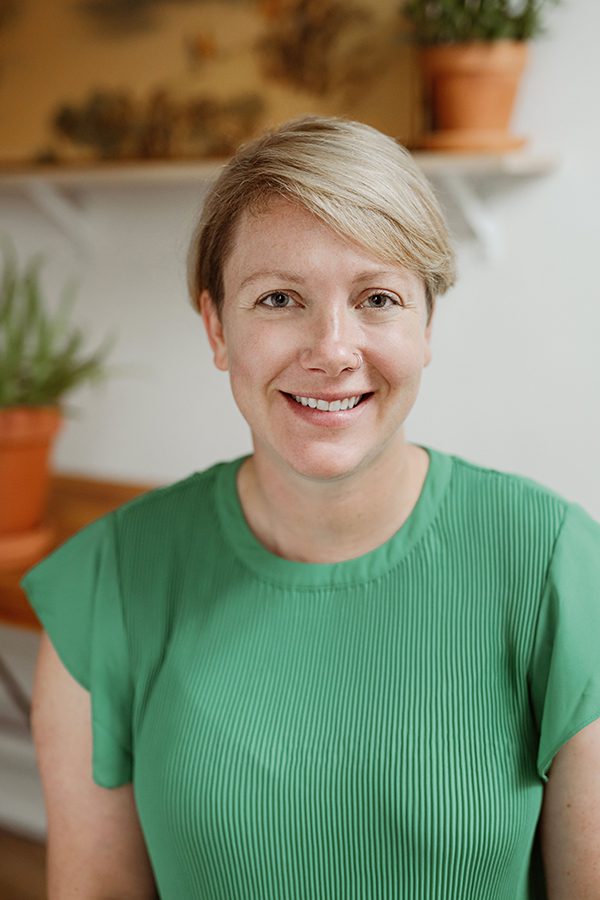
Sara Walters
Sara Walters is a writer based in La Crosse, Wisconsin. She has been a contributor to Inspire(d) since 2018.
Learn more
Hope Restores: hoperestoreswi.org
Paddling for Hope: paddlingforhope.com
Amplifying Black Voices film:
laxwakingupwhite.com/amplifying-black-voices-film.html





